You are here
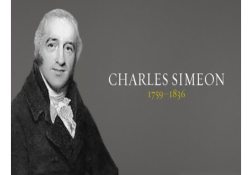 November 13 2023
CHARLES SIMEON
November 13 2023
CHARLES SIMEON
It describes spiritual exercises that are meant to lead people to Christ, reminiscent of much popular spiritual disciplines literature today and the message of most preachers who fuss at their congregations week after week for not getting better and doing more. George Whitefield thought the book was so bad that he once caught an orphan with a copy of it and made him throw it into a fire.
Read more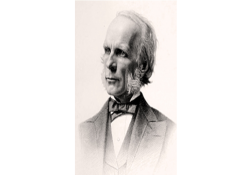 November 12 2023
THE PRESERVATION AND PERPETUAL PROFESSION OF THE THIRTY-NINE ARTICLES - PART ONE
November 12 2023
THE PRESERVATION AND PERPETUAL PROFESSION OF THE THIRTY-NINE ARTICLES - PART ONE
As Dr. Jim Packer informs us the Westminster Confession was an Anglican document on loan to the Presbyterian communion: "My frequent quoting of the Westminster Confession may raise some eyebrows, since I am an Anglican and not a Presbyterian.
Read more November 10 2023
ANGLICAN THEOLOGIANS CLASH OVER KIGALI COMMUNIQUE
November 10 2023
ANGLICAN THEOLOGIANS CLASH OVER KIGALI COMMUNIQUE
At the first Gafcon conference in Jerusalem in 2008, the Rt. Rev. John Hewitt Rodgers, Jr., in whose beloved memory this new, annual lecture series is now held, gave a landmark address entitled Where do we go from here? In his Zoom Memoirs, recorded with the Rev. Dr. Stephen Noll, who is with us tonight, John commented that he considered this address to be the high point of his ministry in the wider Anglican Communion after retirement.
Read more November 05 2023
RICHARD HOOKER (25 March 1554 – 2 November 1600)
November 05 2023
RICHARD HOOKER (25 March 1554 – 2 November 1600)
Hooker was, in fact, neither of these. He fully embraced the Reformation Anglicanism of Thomas Cranmer and the other reformers on all the central doctrinal tenets of the Anglican formularies.
Alister McGrath points out that Hooker's primary argument with the Roman church is their core teaching that righteousness is inherent and infused incrementally over time, that eventually renders Christians worthy of salvation.
Read more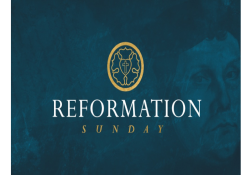 October 29 2023
REFORMATION SUNDAY
October 29 2023
REFORMATION SUNDAY
It would make the Church of England into a church that is thoroughly biblical, theologically Reformed and confessional, pastorally generous, and liturgically beautiful.
Read more October 21 2023
The Leader, the Holy Spirit, and the State of the Church
October 21 2023
The Leader, the Holy Spirit, and the State of the Church
In many Anglican churches in North America, we self-describe as "three streams." Word. Spirit. Sacrament. He gets top billing, at least in concept. When I ask leaders to talk about this stream of the Holy Spirit, I find He's often relegated to the prayer ministry during communion--and that's it. It makes me wonder: Why don't we just say we're "two streams" if that's who we are?
I don't think a lot of leaders would like my top three.
He's all I'd talk about.
Read more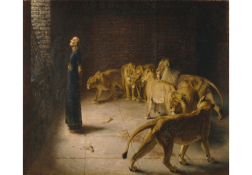 October 18 2023
It is time to enter the Lion's Den: A heartfelt plea to orthodox Anglicans after the HoB statement
October 18 2023
It is time to enter the Lion's Den: A heartfelt plea to orthodox Anglicans after the HoB statement
Many have mistakenly read the statement as saying these new liturgical materials will be brought to synod for approval under canon B2.
Read more October 08 2023
What can Western Christians learn from churches in the rest of the world? (I) & (II)
October 08 2023
What can Western Christians learn from churches in the rest of the world? (I) & (II)
Even so, the title of this article still appears presumptuous today to many for various reasons. First, the theological centers of power are largely found in the West, with multitudes of students from the MW still treading there on pilgrimage for their PhDs. Although excellent seminaries are now found in the MW, in terms of faculty, financial and library resources, and drawing power, they are no match for the Western institutions.
Read more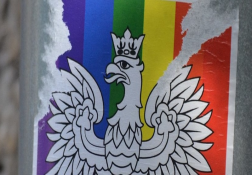 October 05 2023
ON BEING AFFIRMING ISN'T LOVING
October 05 2023
ON BEING AFFIRMING ISN'T LOVING
While it is inappropriate to speculate on the motives in each case, one thing both Stanley and the pope appear to share is a commitment to the therapeutic anthropology that pervades modern Western society and the implicit assumption that any significant challenge to this from a traditional Christian perspective is unloving or bigoted.
Read more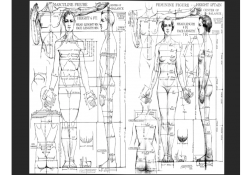 September 27 2023
MALE OR FEMALE: THERE'S NOTHING IN BETWEEN
September 27 2023
MALE OR FEMALE: THERE'S NOTHING IN BETWEEN
More than 99.9 percent of animal species that have developed since the emergence of male and female sexes reproduce sexually. And 95 percent of those animal species—including humans—have male and female sexes in separate individuals, whereby organisms are either male or female for their entire lives.
Read more


